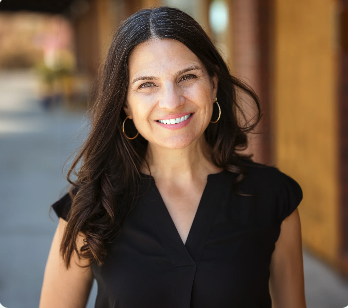
The following excerpts are from a guest essay by Sharon Brous which appeared in the New York Times in January of 2024. Sharon is the founding and senior rabbi of Ikar, a Jewish community in Los Angeles, and the author of The Amen Effect. I keep these words close to me and have read them now many times. Blessings to you, and I hope you find modern relevance in this ancient wisdom:
A somewhat obscure text, about 2,000 years old, has been my unlikely teacher and guide for many years.
Buried deep within the Mishnah, a Jewish legal compendium from around the third century, is an ancient practice reflecting a deep understanding of the human psyche and spirit: When your heart is broken, when the specter of death visits your family, when you feel lost and alone and inclined to retreat, you show up. You entrust your pain to the community.
The text, Middot 2:2, describes a pilgrimage ritual from the time of the Second Temple. Several times each year, hundreds of thousands of Jews would ascend to Jerusalem, the center of Jewish religious and political life. They would climb the steps of the Temple Mount and enter its enormous plaza, turning to the right en masse, circling counterclockwise.
Meanwhile, the brokenhearted, the mourners, the lonely, and the sick, would make this same ritual walk, but they would turn to the left and circle in the opposite direction: every step against the current. And each person who encountered someone in pain would look into that person’s eyes and inquire: “What happened to you? Why does your heart ache?”
“My father died,” a person might say. “There are so many things I never got to say to him.” Or perhaps: “My partner left. I was completely blindsided.” Or, “My child is sick.”
Those who walked from the right would offer a blessing: “May the Holy One comfort you,” they would say. “You are not alone.” And then they would continue to walk until the next person approached.
This timeless wisdom speaks to what it means to be human in a world of pain. This year, you walk the path of the anguished. Perhaps next year, it will be me. I hold your broken heart knowing that one day you will hold mine.
I read in this text many profound lessons. First, do not take your broken heart and go home. Don’t isolate. Step toward those whom you know will hold you tenderly.
And on your good days—the days when you can breathe—show up then, too. Because the very fact of seeing those who are walking against the current, people who can barely hold on, and asking, with an open heart, “Tell me about your sorrow,” may be the deepest affirmation of our humanity.
It is an expression of both love and sacred responsibility to turn to another person in her moment of deepest anguish and say: “Your sorrow may scare me, it may unsettle me. But I will not abandon you. I will meet your grief with relentless love.”
Showing up for one another doesn’t require heroic gestures. It means training ourselves to approach, even when our instinct tells us to withdraw. Err on the side of presence.
Here’s the second lesson from that ancient text. Humans naturally incline toward the known. Our tribes can uplift us, order our lives, give them meaning and purpose, direction and pride. But the tribal instinct can also be perilous. The more closely we identify with our tribe, the more likely we are to dismiss or even feel hostility toward those outside it.
One of the great casualties of tribalism is curiosity. And when we are no longer curious, when we don’t try to imagine or understand what another person is thinking or feeling, our hearts begin to narrow.
Trauma exacerbates this trend. It reinforces an instinct to turn away from one another, rather than make ourselves even more vulnerable.
The ancient rabbis ask us to imagine a society in which no person is disposable. Even those who have hurt us, even those with views antithetical to ours, must be seen in their humanity and held with curiosity and care.
We desperately need a spiritual rewiring in our time. Imagine a society in which we learn to see one another in our pain, to ask one another, “What happened to you?” Imagine that we hear one another’s stories, say amen to one another’s pain, and even pray for one another’s healing. I call this the “amen effect”: sincere, tender encounters that help us forge new spiritual and neural pathways by reminding us that our lives and our destinies are entwined. Because, ultimately, it is only by finding our way to one another that we will begin to heal.